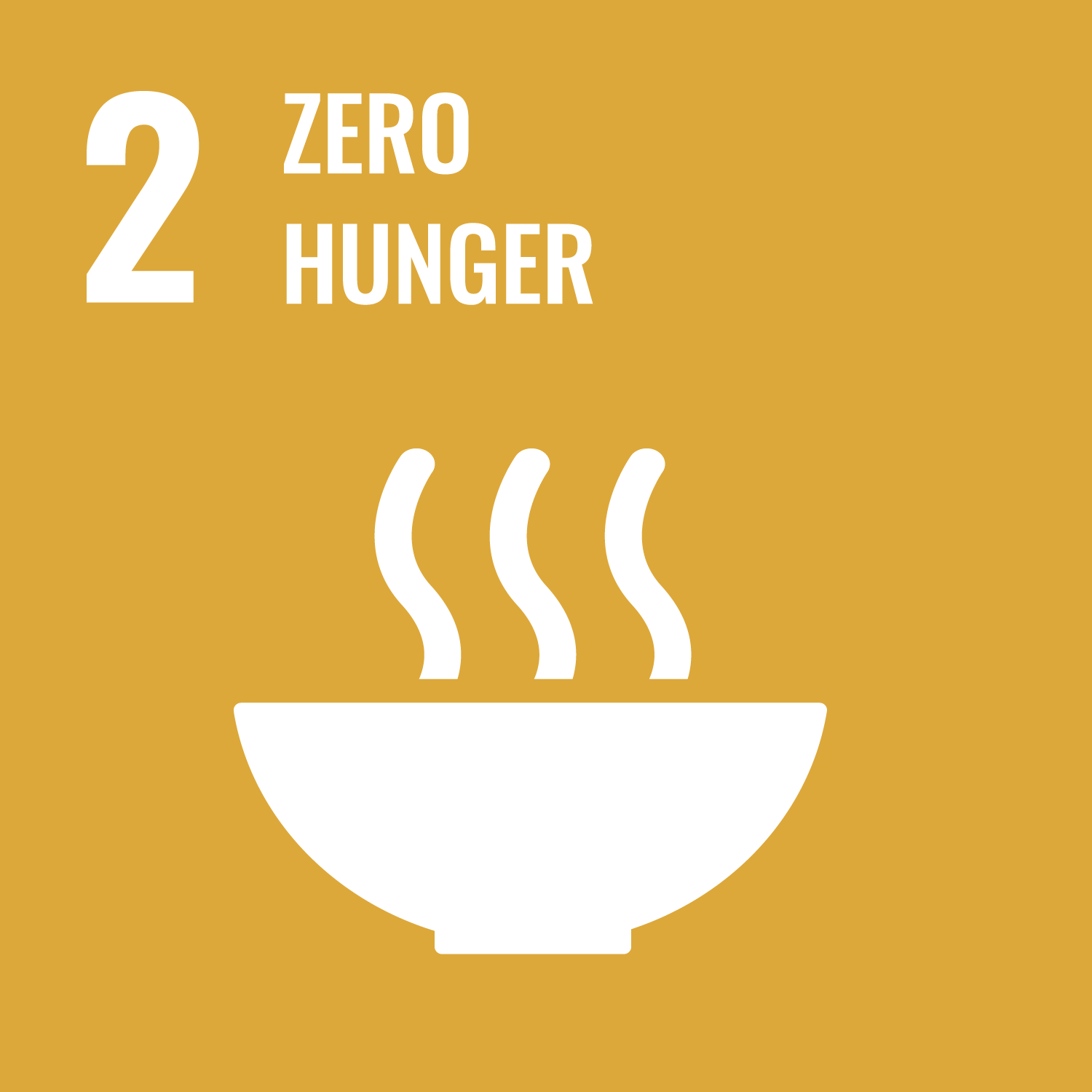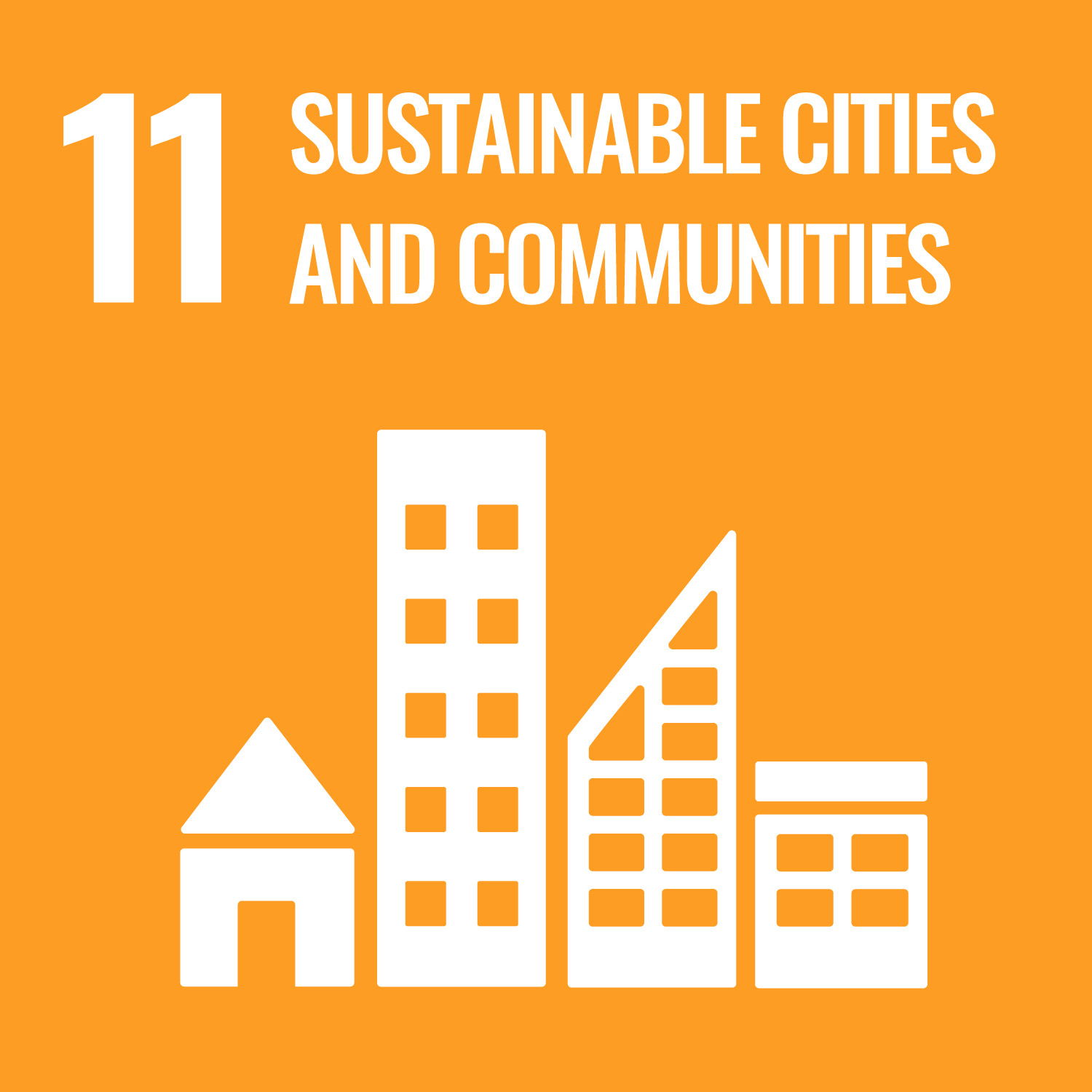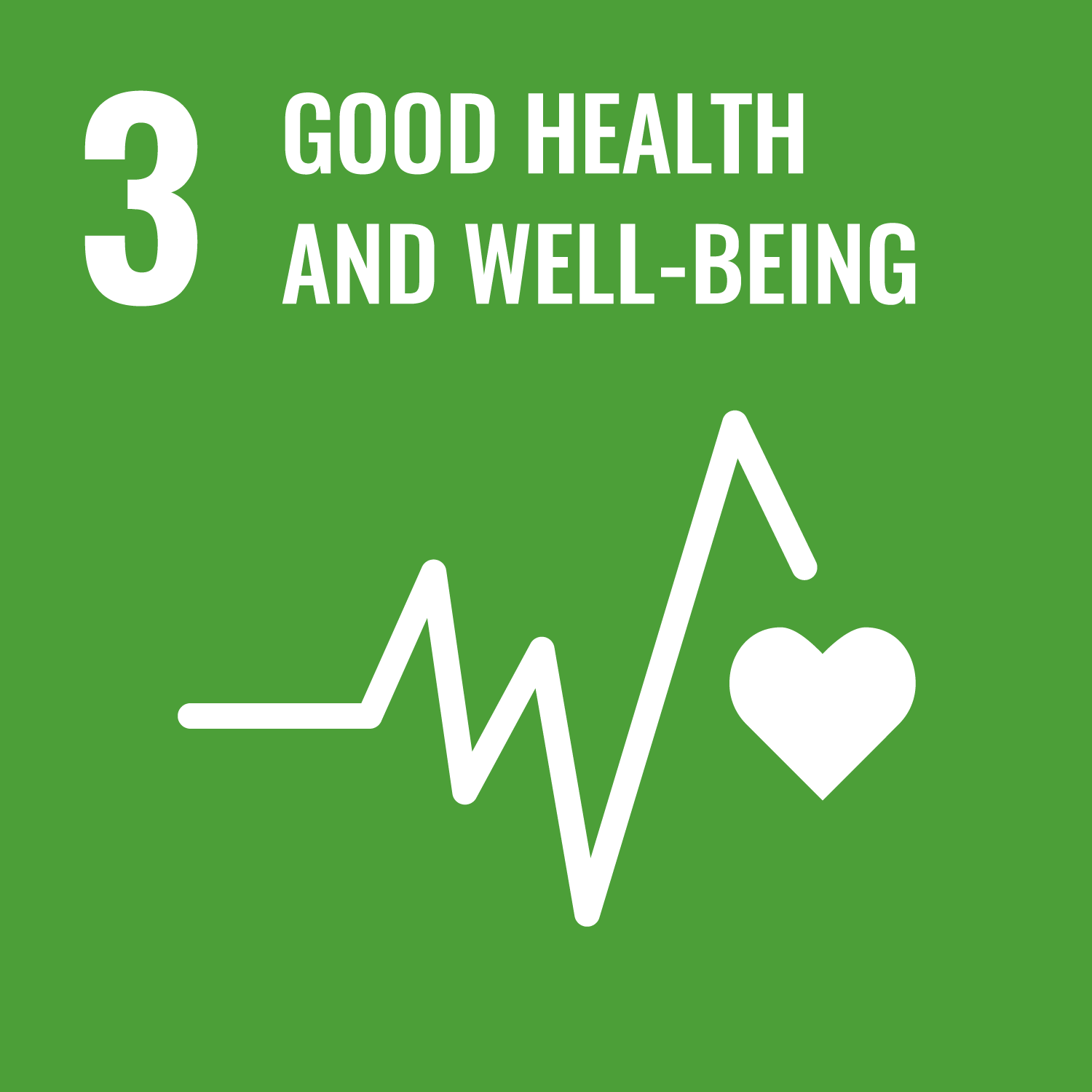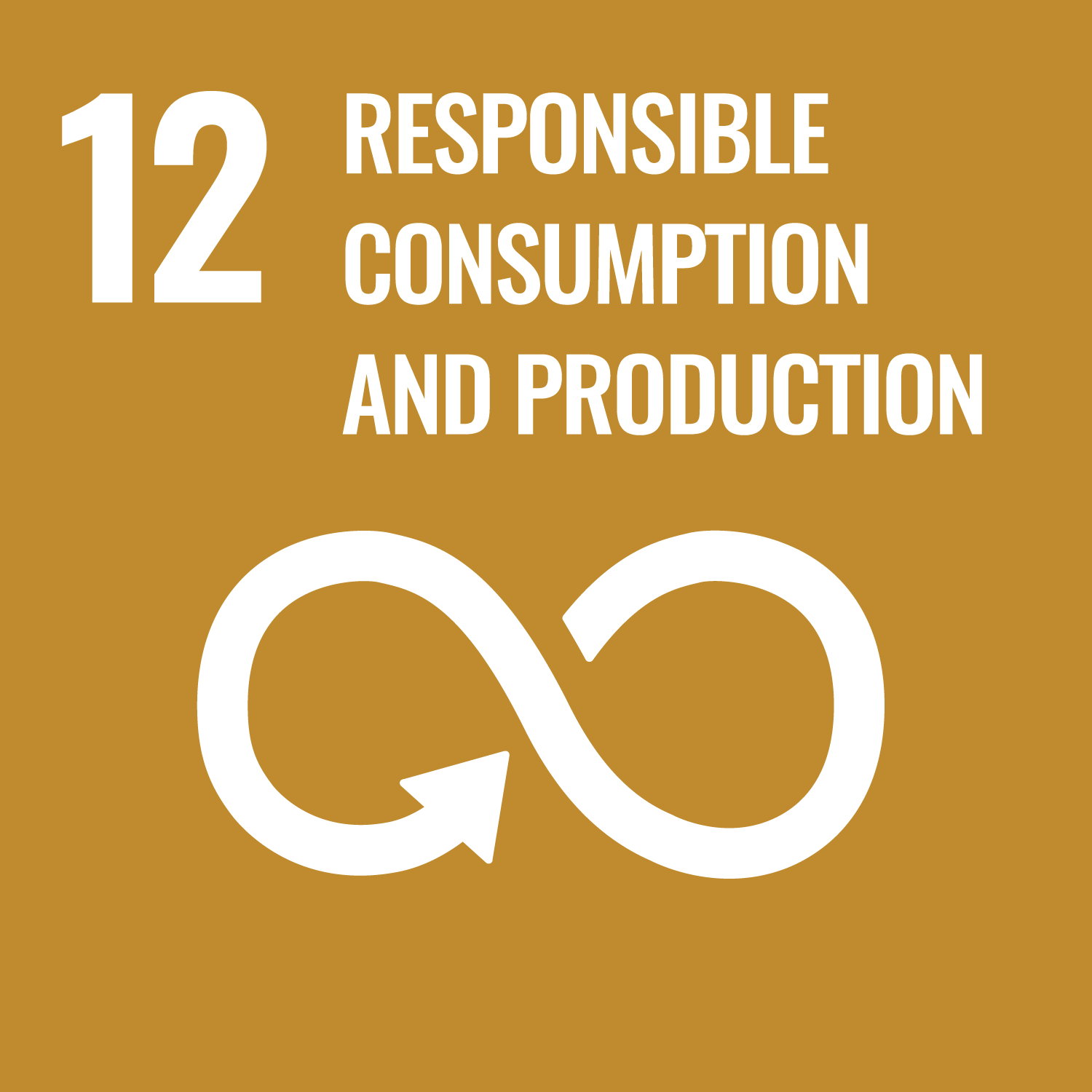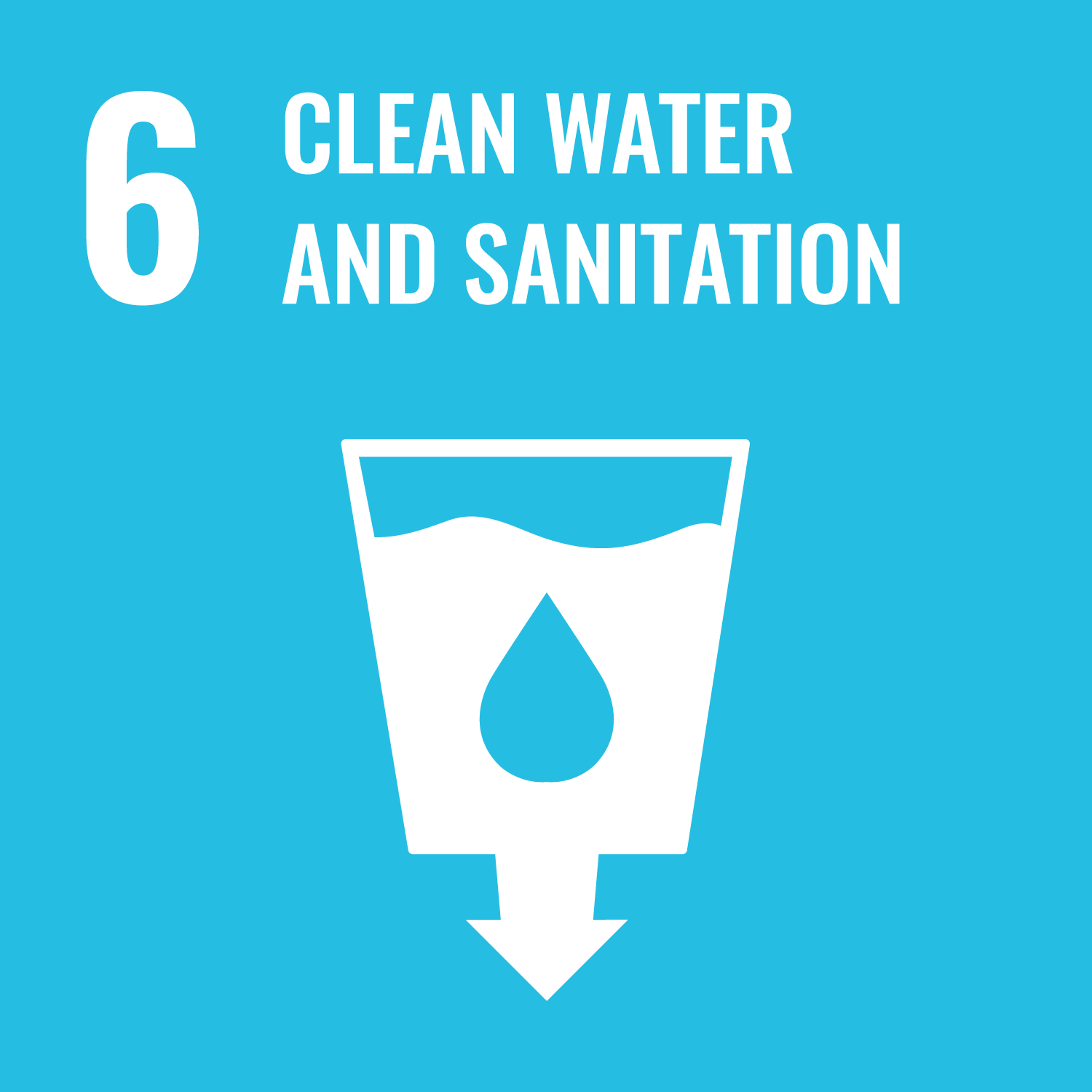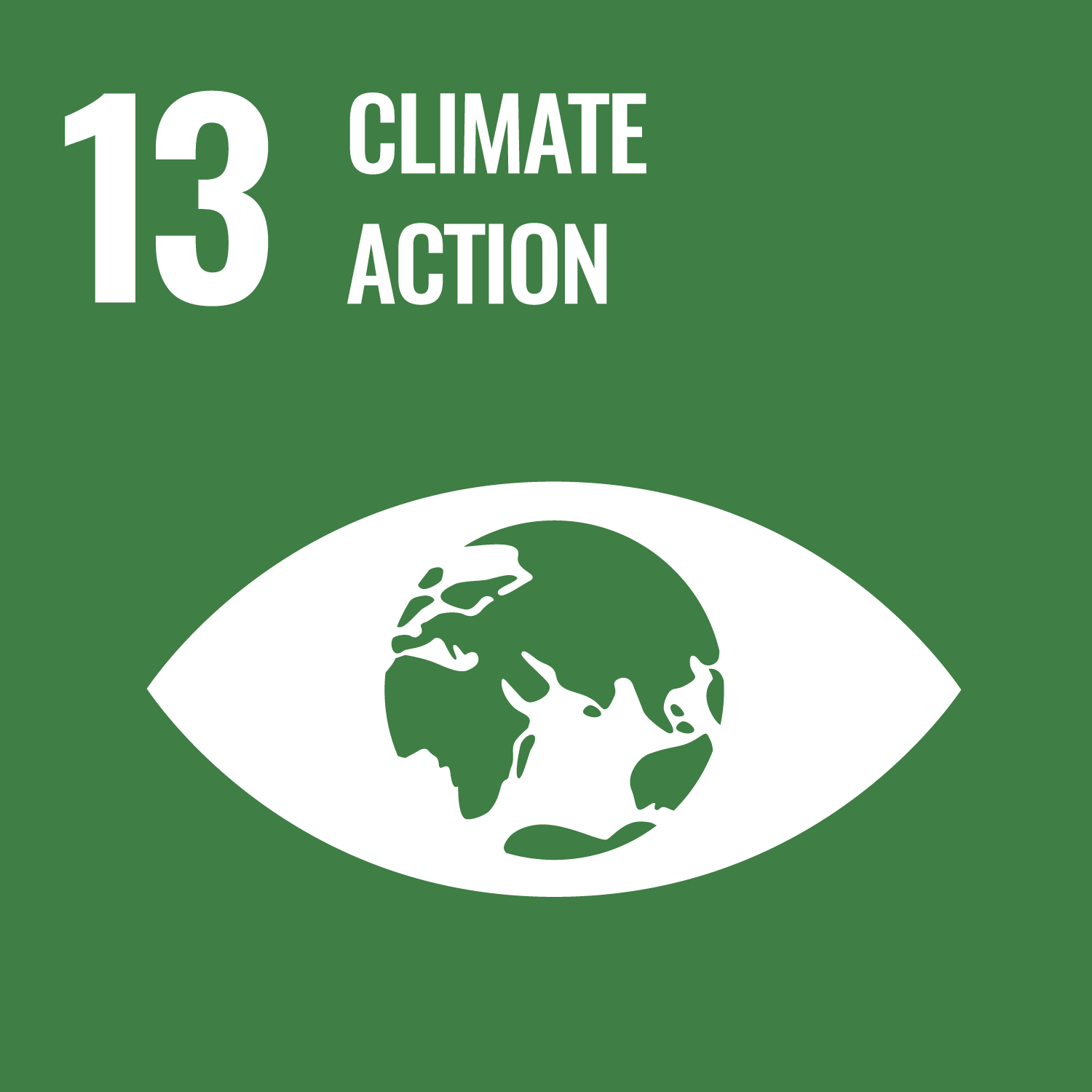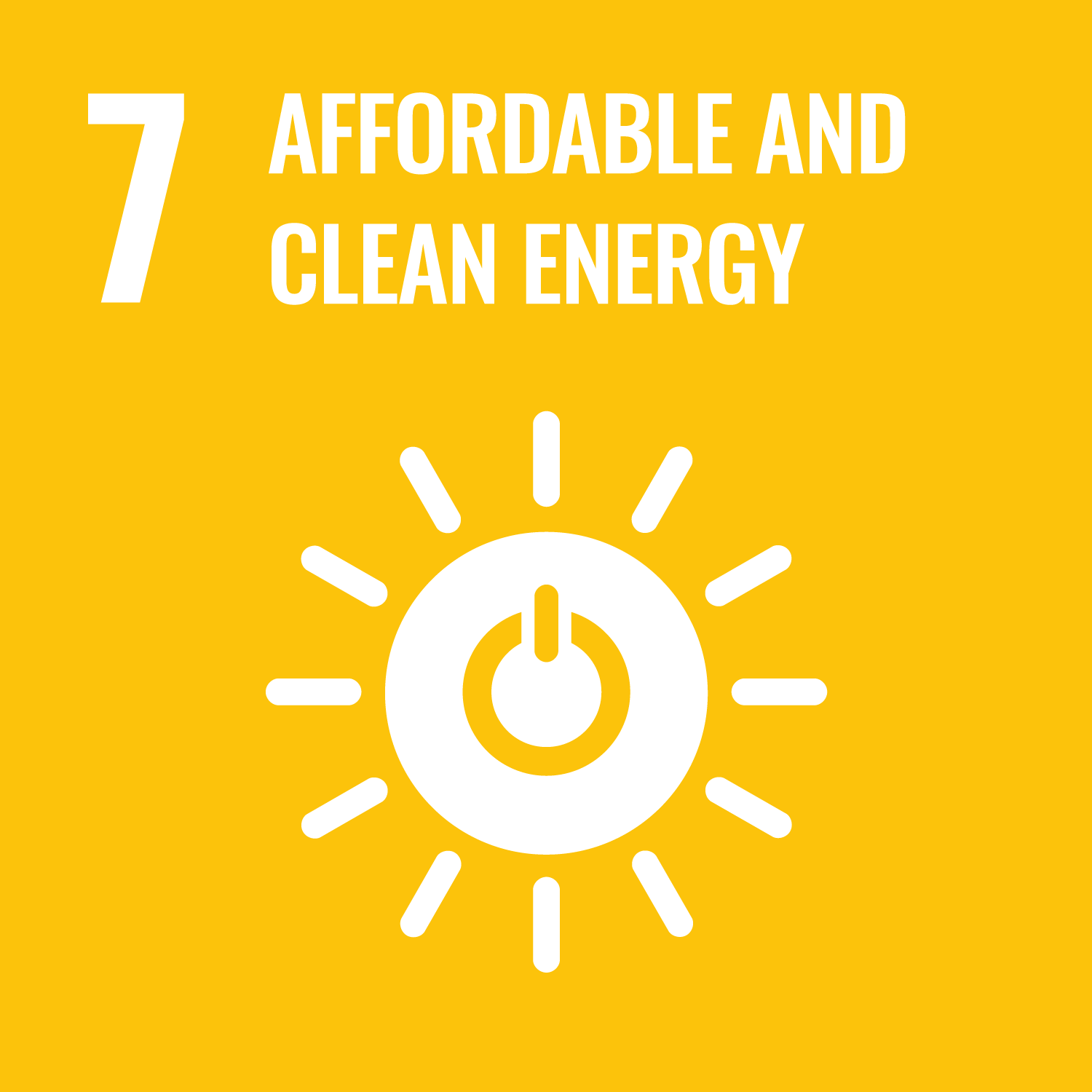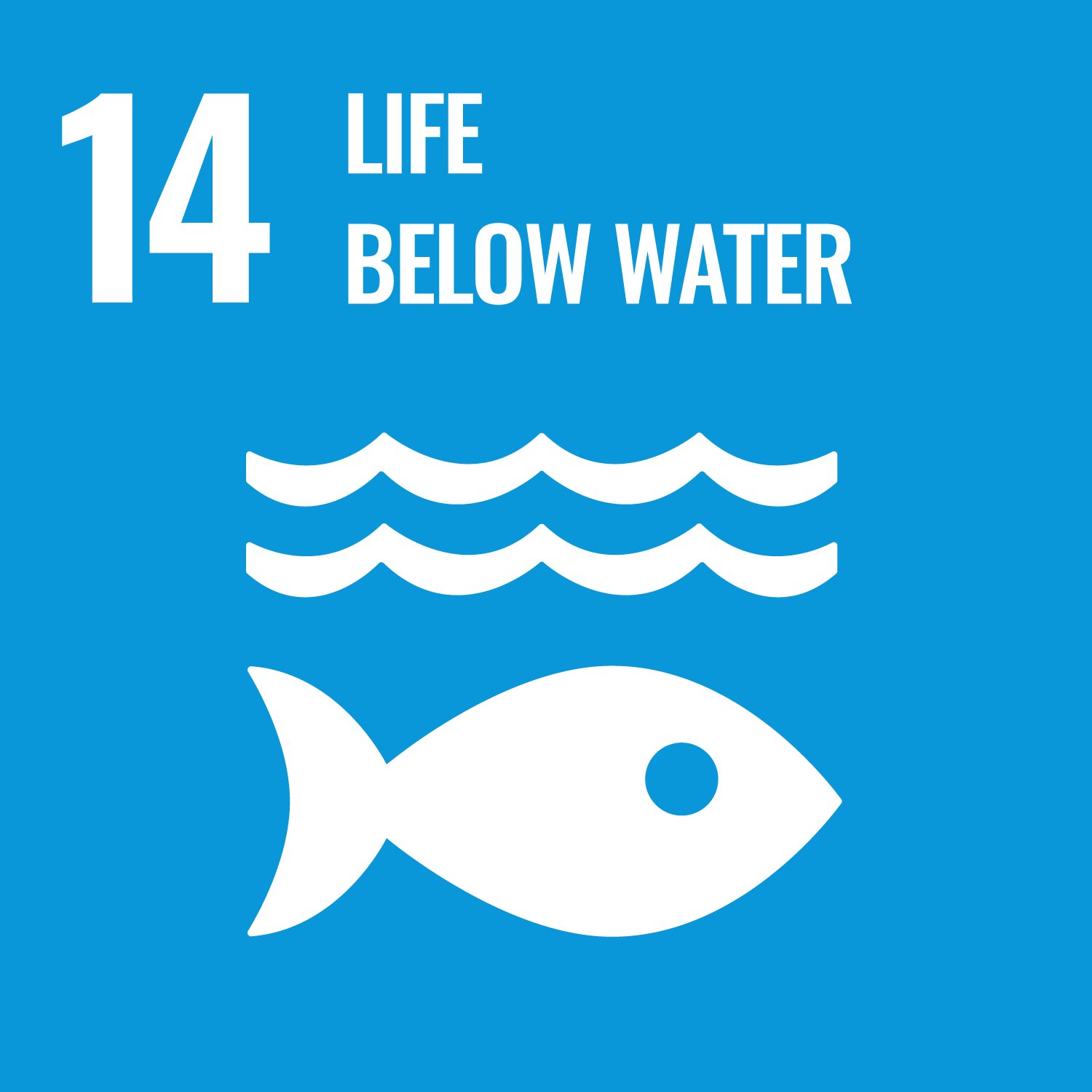Operations
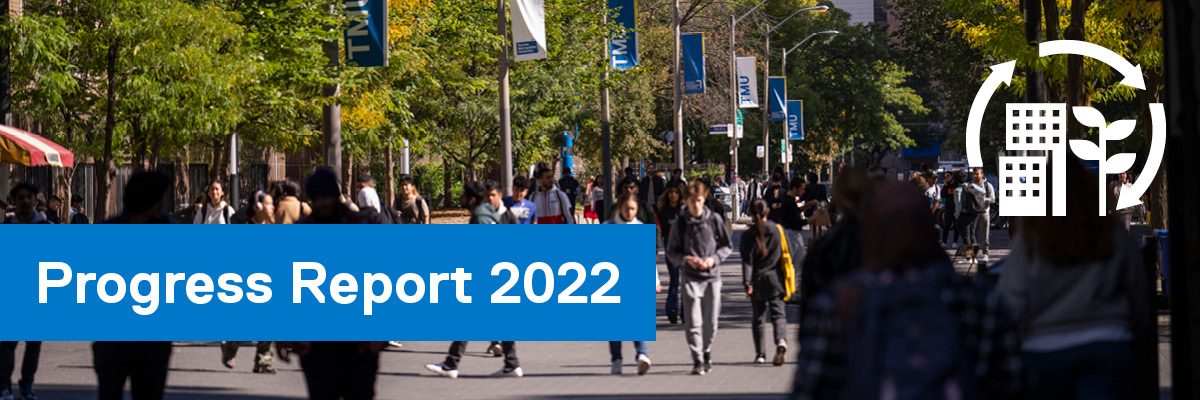
Waste
Updated waste diversion numbers
According to our 2021 campus waste audit, TMU’s waste diversion rate (i.e. the amount of waste that was diverted from the landfill waste stream to recycling or organics) was approximately 20%. While this marked a dramatic decrease from previous years, the total amount of waste produced on campus dropped by approximately 75%. The variability in our waste audit results can be attributed to the impact of COVID-19, with fewer people on campus throughout the academic year. The 2020 audit was not completed as a result of the COVID-19 pandemic and absence of people on campus.
Total amount of waste produced on campus dropped by approximately
75%

Centralized waste program roll-out in 10 buildings
In 2021-2022, the Sustainability Office, in partnership with Custodial and Groundskeeping Services, introduced a new centralized waste collection program in TMU-operated buildings. This is part of a campus-wide effort to improve our waste diversion rate and reduce the amount of waste we are generating on campus, while creating a more efficient collection system as we work towards a zero waste campus.
With centralized waste collection programs, our students, faculty and staff are responsible for disposing of their landfill, recycling and organics waste into the 4-stream multi-sort stations strategically located in designated common areas such as hallways, office areas and break rooms. In office spaces, deskside bins have been removed and it is up to each employee to dispose of their waste in the nearest multi-sort station.
Centralized waste programs have repeatedly been shown to achieve higher recycling and composting levels as it fundamentally changes the way materials are collected. Instead of simply tossing garbage below the desk without a second thought, this method requires individuals to approach the multi-sort waste stations where signage and sorting information is very clear. This makes sorting materials easy, which reduces contamination and helps us recycle and compost more. It also lessens our environmental impact by eliminating the need for plastic liners in deskside waste bins.
We plan to continue the full implementation of this program in all TMU operated buildings through the 2022/23 academic year.
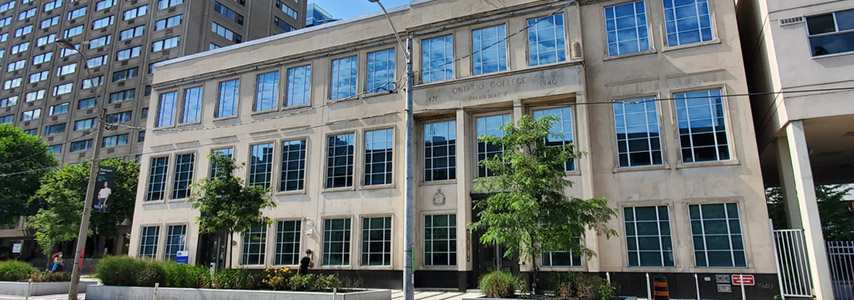
The buildings where the program was implemented include:
- Centre for Urban Innovation
- Daphne Cockwell Health Sciences Complex
- Eric Palin Hall/Sally Horsfall Eaton Centre for Studies in Community Health
- Recreation and Athletics Centre
- Rogers Communications Centre
- School of Image Arts
- South Bond Building (4th floor only)
- Sheldon & Tracy Levy Student Learning Centre
- The Chang School of Continuing Education
- Victoria Building (8th floor only)

Pop-up Free Store launched during Orientation week
TMU’s first pop-up Free Store event was held over a two week period during O-week in September 2022. The Free Store is dedicated to helping TMU students reduce their environmental impact and save money. Students were able to choose from a variety of gently-used items like office supplies, electronics, home decor, kitchen supplies, books and more, all for free! During the first pop-up event, approximately 3,441 students visited the Free Store, 2,540 items were rehomed and 1,266 lbs were diverted from landfill and given a second life.
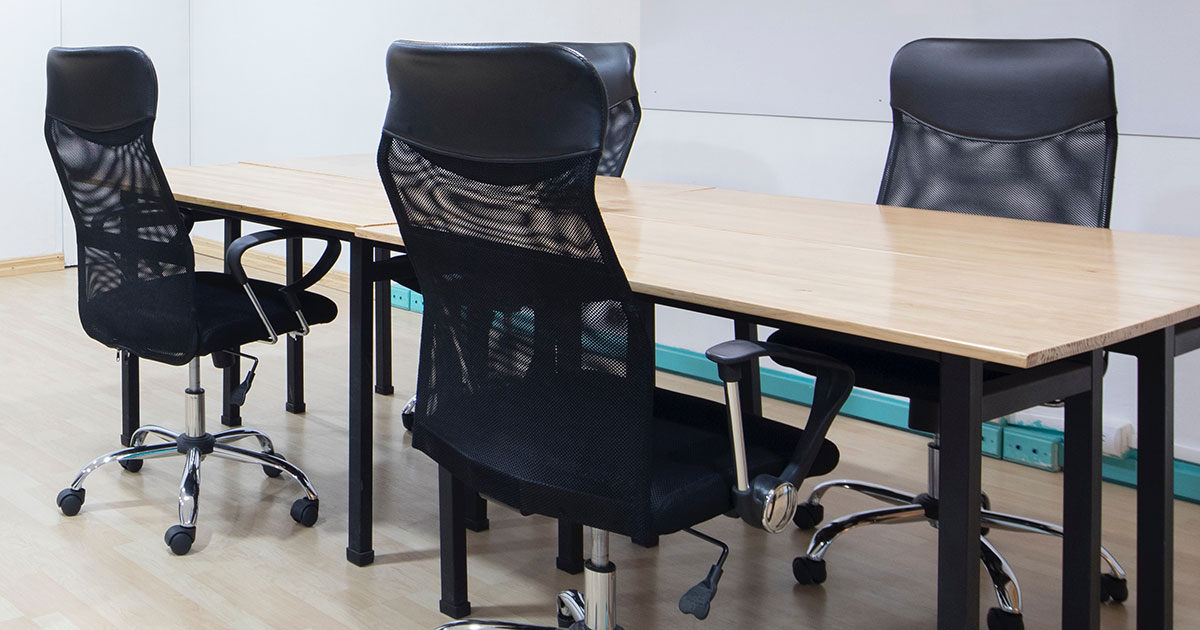
Furniture Rehome Program saved roughly 126 items that would otherwise be destined for the landfill
TMU’s Furniture Rehome Program (formerly RUsed Furniture Program) operates as an opt-in Google group where staff and faculty can post and exchange TMU-owned furniture items with other departments. During the 2021/2022 year, roughly 126 furniture items that would otherwise have been destined for the landfill were saved and rehomed for use by other departments at the university.
Due to the “just-in-time” nature of the program, it has been limited in its capacity to create large-scale impact and most furniture across campus still gets sent to landfill. Our goal is to create a program that eliminates landfill waste by reusing and recycling every last piece of furniture on campus. That’s why we are building upon this already successful program by storing unclaimed surplus furniture in a designated space while awaiting redistribution, increasing opportunities for reuse and donation.

Climate, Energy and Water
Updated Emissions Inventory
Each year, the Sustainability Office completes a GHG inventory for TMU’s campus using information collected from utility bills, waste audits and financial statements. GHG emissions associated with our campus operations (Scope 1 and 2) increased by 16% per cent during the 2021/2022 academic year relative to the previous year. This is mostly attributed to the decrease in energy consumption during the previous year as a result of the COVID-19 shutdown. Since 2015/2016 total campus GHG emissions (Scopes 1, 2 and 3) decreased by approximately 10%.
10%
decrease in total campus GHG emissions since 2015/2016
Annual GHG emissions trend
This chart shows the annual GHG emissions trend measured in tonnes of CO2 at TMU from 2015 to 2022.
| Fiscal Year | Tonnes CO2 |
|---|---|
| 2015-2016 | 15,167 |
| 2016-2017 | 14,708 |
| 2017-2018 | 16,656 |
| 2018-2019 | 16,852 |
| 2019-2020 | 16,000 |
| 2020-2021 | 11,715 |
| 2021-2022 | 13,750 |
GHG emissions sources 2021/2022
This figure provides a breakdown of GHG emission sources on campus for the 2021/2022 fiscal year (excluding commuting-related emissions). As shown, steam and natural gas, which are used for heating buildings and water on campus, contribute significantly to our campus’ carbon footprint.
GHG emissions breakdown 2021/2022
This chart shows the GHG breakdown at TMU in 2021-2022.
| Emission Source | Percent |
|---|---|
| Steam | 67% |
| Natural gas | 20% |
| Electricity | 13% |
| Chilled water | 0% |
| Diesel | 0% |


Maintenance and Operations Projects
Throughout the 2021/22 academic year, TMU conducted feasibility studies for energy efficient LED lighting retrofits in 4 buildings: Jorgenson Hall, Library Building, Podium and School of Interior Design. These studies will be used to create a detailed design to upgrade the building lighting systems and reduce their energy consumption. A detailed LED retrofit design for the Sheldon & Tracy Levy Student Learning Centre was also completed and procurement to implement the project is currently underway.
The air handling units used to heat, cool, and ventilate Jorgenson Hall, Library Building and Victoria Building are due to be replaced with more energy efficient alternatives that utilize heat recovery. The design of these upgrades have been initiated and are currently underway.
The exterior living wall at the Sheldon & Tracy Levy Student Learning Centre was refurbished with new plantings in an effort to provide access to green space at an integral junction of TMU's campus.
4 buildings studied for energy efficient LED lighting retrofits
Energy efficient air handling units upgrades underway

Updated domestic water consumption
TMU’s Sustainability Office tracks water consumption through the analysis of monthly utility bills. Water consumption decreased by approximately 3% in 2021/2022 and 53% since the 2019/2020 academic year. The spike in water consumption in 2019/2020 was the result of issues with our campus steam distribution network and the condensate return system, which have since been fixed. Domestic water consumption also saw a decrease over the past two years as a result of the absence of activity on campus due to the COVID-19 pandemic.
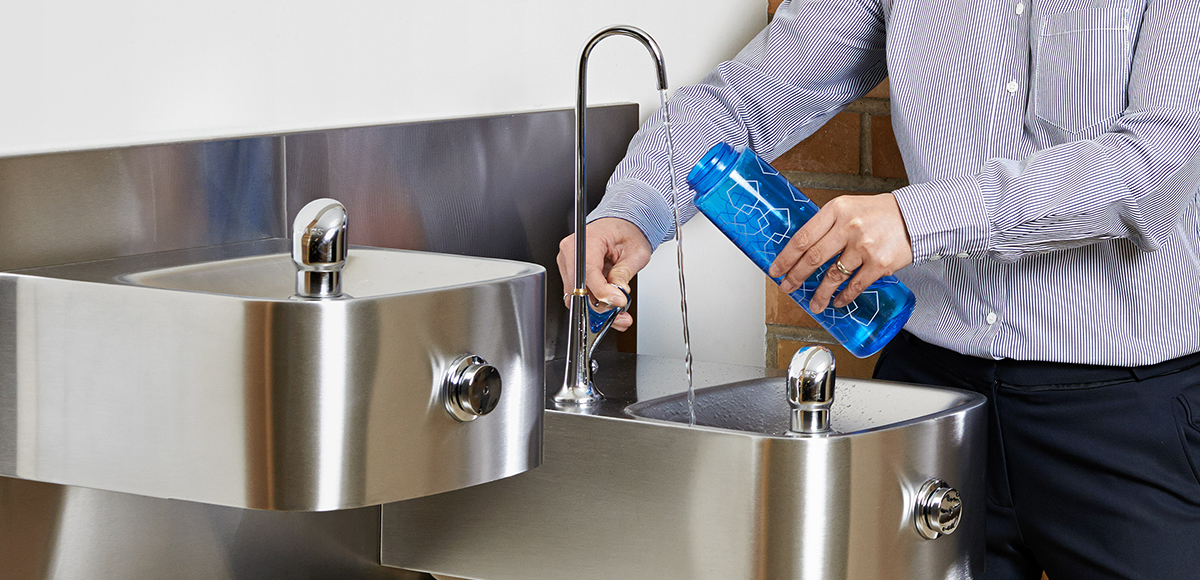
Water consumption 2014-2022
This chart shows water consumption from 2014-2022 measured in m3.
| Fiscal Year | Volume m3 |
|---|---|
| 2014-2015 | 208,714 |
| 2015-2016 | 283,885 |
| 2016-2017 | 305,995 |
| 2017-2018 | 305,208 |
| 2018-2019 | 319,200 |
| 2019-2020 | 413,396 |
| 2020-2021 | 247,658 |
| 2021-2022 | 240,480 |

Food and Dining
Pitman Dining Hall
Pitman Dining Hall was designated as a 3 Star Certified Green Restaurant® under the Green Restaurant Association in 2021. This is one of the highest scores of any Canadian post-secondary food service provider.
The Green Restaurant Association certification (external link) recognizes restaurants that have incorporated ecological sustainability into their operations in categories like water efficiency, waste reduction, sustainable food, and chemical and pollution reduction.
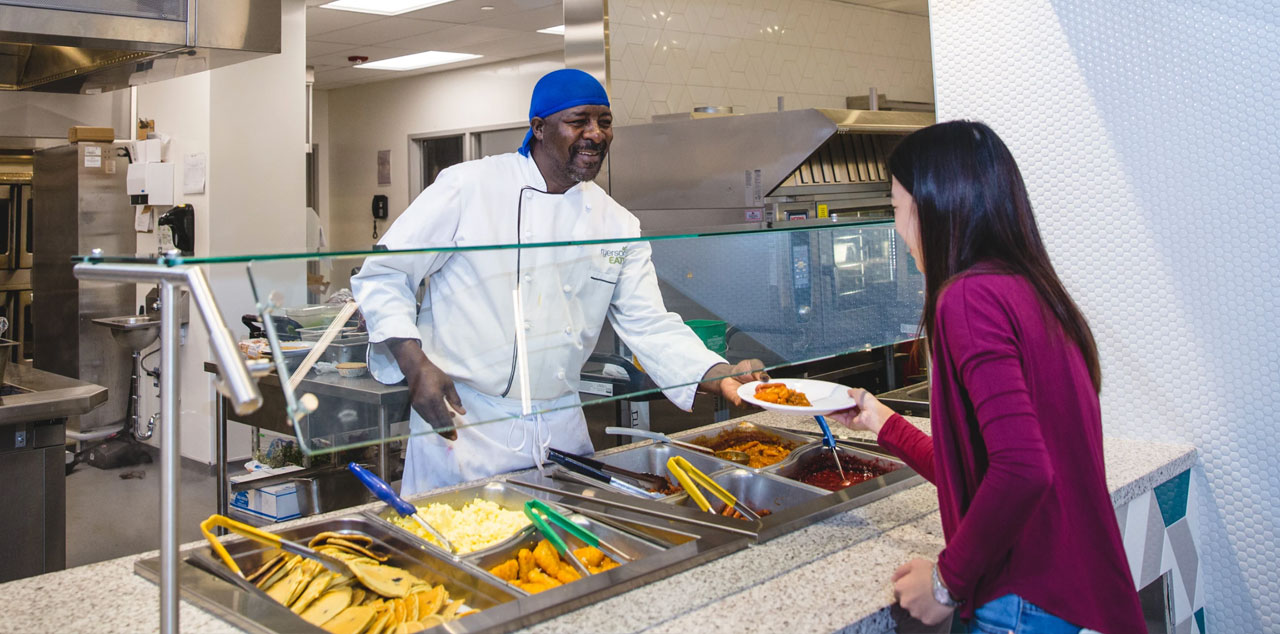
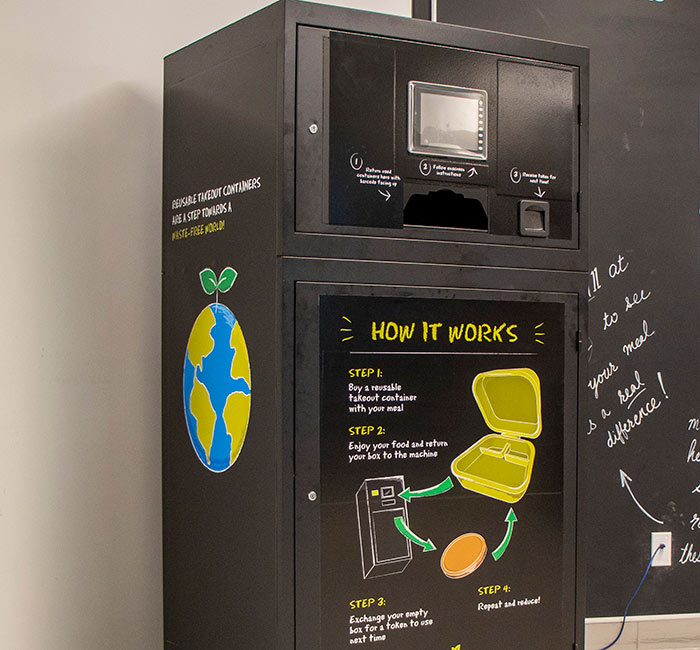
OZZI container program
In 2020, TMU Eats launched the OZZI reusable to-go container program to reduce waste and single use food packaging on campus by encouraging students, faculty and staff to forgo disposable containers for a more sustainable and environmentally-conscious takeout option in the Hub Café (pre-COVID-19) and the Pitman Hall (PIT) dining hall (post COVID-19).
- Each reusable to-go container is 100% recyclable and can be used up to 300 times.
- During the 2021/2022 academic year, approximately 1,200 containers were in circulation in residence dining halls, compared with 650 the previous year.
- Approximately 490,000 single-use take out containers were avoided during the 2021/2022 academic year through the residence OZZI reusable to-go container program.
In September 2022, the OZZI containers will move to retail operations.
Containers are 100% recyclable and can be used up to 300 times
In 2021/2022, 1,200 containers were in circulation
490,000 single-use take out containers were avoided in 2021-2022
Reusable cutlery
The Sustainability Office partnered with TMU Eats to give out 975 reusable bamboo cutlery sets to all incoming residence students in Fall 2021 in an effort to reduce the use of disposable plastic cutlery in residence dining halls.
975 reusable bamboo cutlery sets given out residence students

Buildings and Grounds
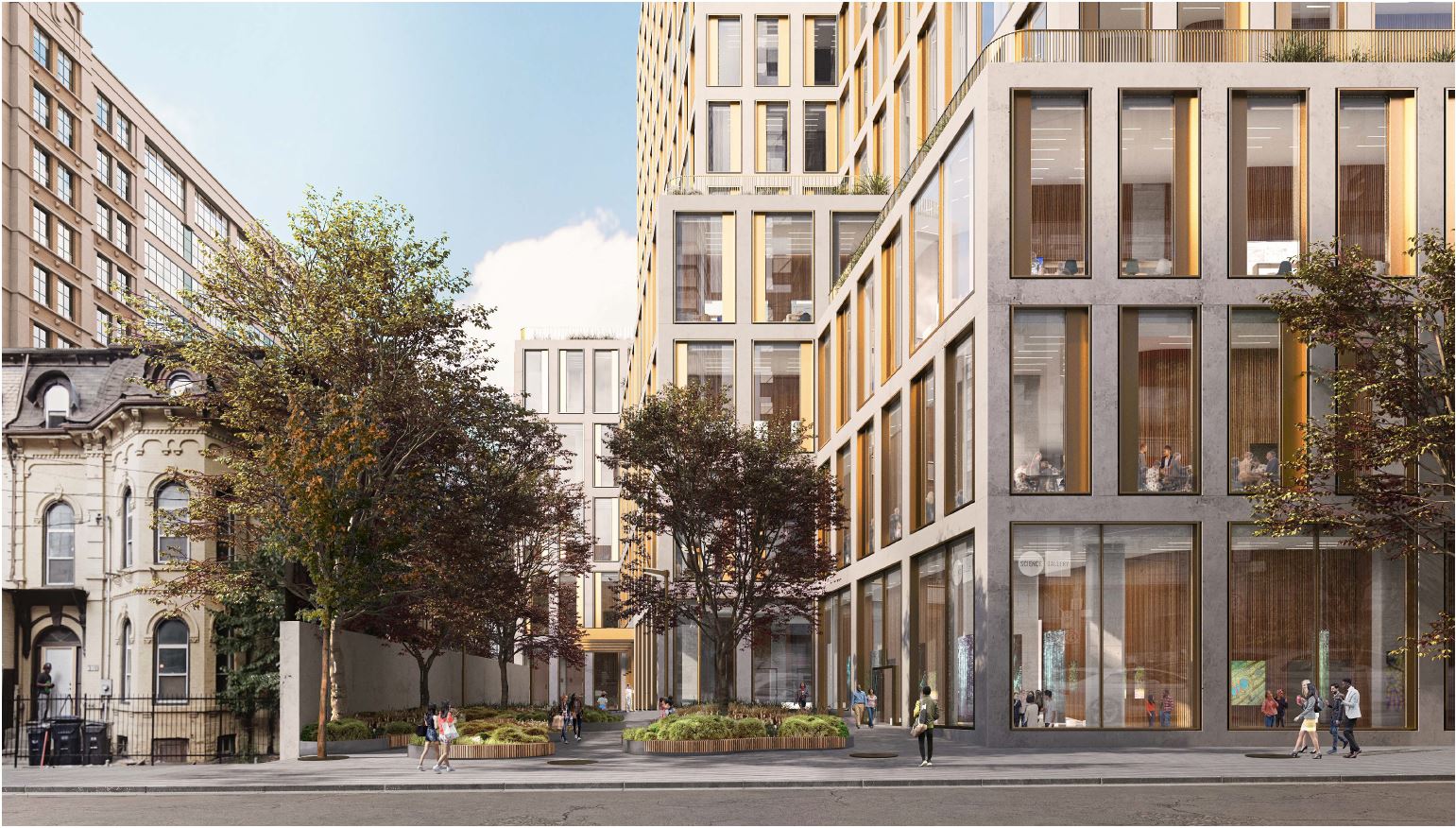
Sustainable Building Guidelines published
TMU published its first set of (google doc) Sustainability Building Guidelines (external link) for new and existing buildings. The guidelines emphasize passive design principles and prioritizes electrification, requiring that new buildings and major renovations to existing buildings meet ambitious energy performance targets with flexibility for various building types.
The guidelines apply to all capital projects (new construction, additions and major renovations), minor renovations with carbon and energy implications (as applicable).

Sustainable Transportation
TMU’s campus transportation systems recognized as most sustainable in global ranking
The 2021 Sustainable Campus Index, published annually by the Association for the Advancement of Sustainability in Higher Education (AASHE), seeks to recognize top-performing colleges and universities in 17 sustainability impact areas. TMU garnered the top position for sustainable transportation based on a number of factors including the small size of our campus fleet, programs promoting sustainable transportation and the number of students and staff choosing sustainability commuting options to get to and from campus.
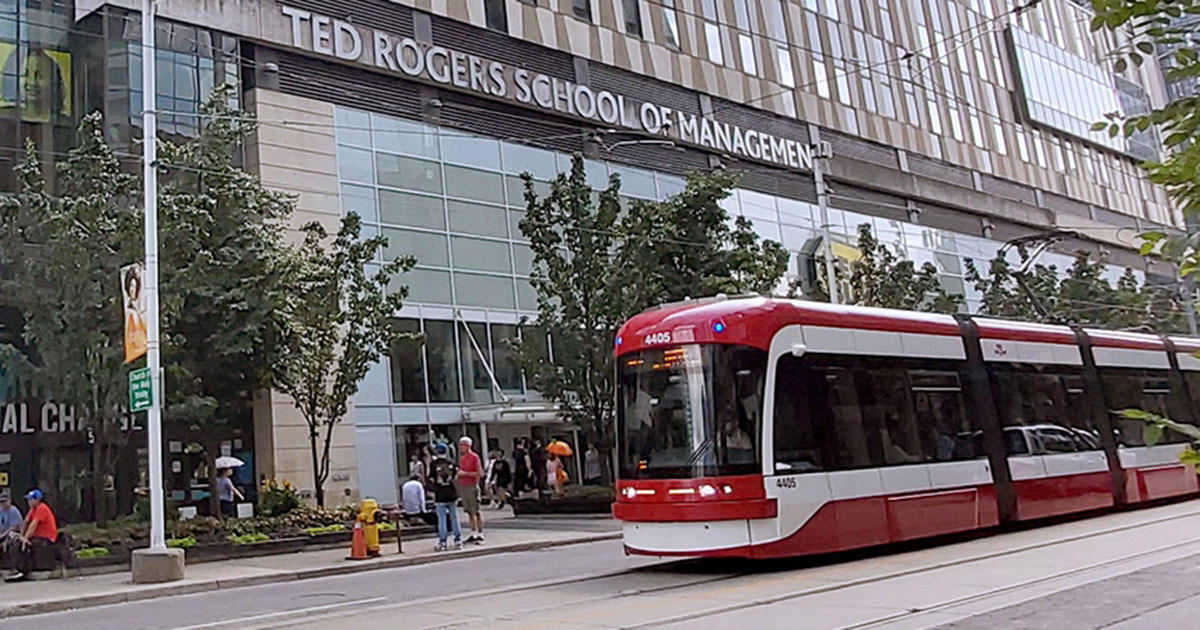
More than 90 per cent of TMU community members use sustainable commuting options such as public transit, biking and carpooling as their primary mode of transportation to campus.

UN Sustainable Development Goals related to these initiatives:
